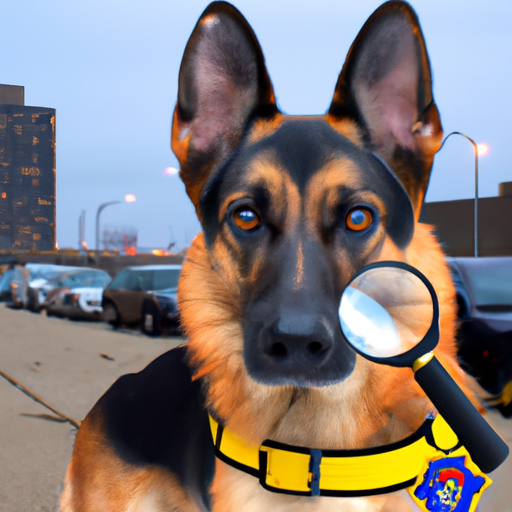Introduction
You’ve probably noticed that when it comes to police dogs, German Shepherds are a common breed. Why is that? What sets them apart from other breeds? You, being a caregiver, might be curious to understand the reasons behind this. So, sit back, relax, and let’s delve into the fascinating world of German Shepherds.
Their Exceptional Traits
German Shepherds aren’t just chosen randomly; they possess specific characteristics that make them an excellent choice for police work:
- Intelligence: German Shepherds are one of the most intelligent breeds, making them quick learners.
- Versatility: They can perform various tasks such as detection, tracking, and protection.
- Strength and Stamina: Their physical capabilities allow them to endure rigorous training and demanding tasks.
- Loyalty: German Shepherds are known for their unwavering loyalty, an essential quality for a police dog.
The Role of Training
Training plays a pivotal role in shaping a German Shepherd into an efficient police dog. Let’s look at the training phases:
- Socialization: This involves introducing the dog to various environments, sounds, and situations.
- Obedience: Here, the dog learns to follow basic commands like sit, stay, and come.
- Agility: This training enhances the dog’s physical capabilities and ability to navigate obstacles.
- Specific Skills: Depending on their role, the dogs are then trained in specialized areas such as search and rescue, detection, or protection.
A Historical Perspective
The use of German Shepherds as police dogs isn’t a recent phenomenon. In fact, it has historical roots dating back to the early 20th century. The table below provides a brief history:
| Year | Event |
|---|---|
| 1900s | The breed’s intelligence and versatility were recognized in Germany. |
| 1910 | German Shepherds were officially recognized as a breed. |
| 1920s | The breed started gaining popularity in the U.S and were introduced in police work. |
Impact on Society
You might wonder, how does a German Shepherd’s role as a police dog impact society? Well, they:
- Help in maintaining law and order.
- Assist in search and rescue operations.
- Help in drug and bomb detection, protecting numerous lives.
- Provide emotional support and companionship to their handlers and the community.
Frequently Asked Questions
Q: Are all German Shepherds suitable for police work?
A: No, not all German Shepherds are suitable for police work. It depends on their health, temperament, and trainability.
Q: Can female German Shepherds be police dogs?
A: Yes, both male and female German Shepherds can be trained as police dogs.
Q: Are German Shepherds aggressive?
A: No, aggression is not a breed trait. However, like any breed, individual behavior can vary.
Q: How long does it take to train a German Shepherd as a police dog?
A: It can take anywhere from 6 months to a year, depending on the specific skills being taught.
So, next time you see a German Shepherd serving alongside law enforcement, you’ll understand why they are such a popular choice. Their intelligence, loyalty, and versatility, coupled with rigorous training, make them an invaluable asset to police forces around the world.



